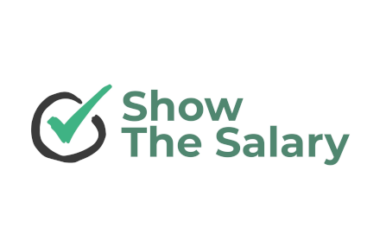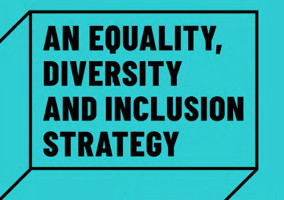Sixteen agencies and job boards have now signed the Show The Salary pledge for recruitment fairness, two weeks after the campaign launched.
They are committing to always “show the salary” for the roles they advertise, and are also “strongly encouraged” to avoid asking candidates about their previous salary or requiring a degree, unless absolutely necessary for the role.
The Chartered Institute of Fundraising (IoF) also said it will now only publish job adverts that include salary details, and will be hosting an open forum to discuss the campaign on Tuesday.
Small Charities Coalition adds its support
So far, Show The Salary has only accepted official pledges from recruiters and job boards. A full list of agencies and organisations that have signed is published on the campaign’s website, and includes the Small Charities Coalition (SCC).
SCC said: “When equality and equity are so important in the charitable sector, there is no reason why those fortunate enough to have the income to employ staff should not disclose salary levels.
“Making clear salaries in recruitment inspires confidence, demonstrates a commitment to equality and enables transparency – the hallmarks of a good employer.”
Show The Salary argues that failing to include salary details in job adverts, for example by listing the salary as “competitive”, is an outdated and discriminatory practice, which can increase inequality and the gender and ethnicity pay gaps. Its website includes a list of resources on the topic.
Charities update job ads
Show The Salary has been calling out charities that advertise jobs without including salary details on Twitter. Its campaigners said that some of them, including British Red Cross and Sightsavers, have updated their ads after speaking to them.
Show The Salary also said that it was contacted by organisations keen to sign the pledge, and that it will now be opening it up to charities too.
It said: “We're delighted to now announce that we are opening up our pledge to charities this week and look forward to the conversations we'll be having in the coming weeks to make discriminatory recruitment practices a thing of the past.”
Collating people’s experiences
The campaign has asked people in the sector to share their experiences on hidden salaries, and will collate and publish them on the website.
One person who spoke to Show The Salary reportedly said: “In my first leadership role, the salary wasn't advertised. I was offered a rate which turned out to be £10,000 (or 20%) below the bottom of the salary band for the role.
“In two years I got to the bottom of the salary band. My (older, white and male) peer in fundraising was paid nearly 50% more than I was.”
Show The Salary said it considers the campaign a success so far: “We are delighted with our first two weeks, and we are hugely grateful to all the people, agencies and charities who have demonstrated their commitment #ShowTheSalary and much more beyond. They are showing there's a fairer, more equal, sector within our grasp.”
IoF: All jobs advertised will #ShowTheSalary
Show The Salary previously criticised the IoF because it advertised roles that didn't list a salary and which required a degree.
In July, the IoF’s Change Collective published recruitment guides aimed at increasing diversity in the sector. The guides advise hiring managers to question whether a degree is absolutely necessary to the role and suggest that a base salary should be included in the ad.
The Institute has now committed to only list jobs that disclose salary details as well as to update its guides.
On Tuesday, it will be hosting an open forum to discuss the campaign and other recruitment practices. It will be chaired by CharityComms chief executive Adeela Warley.
The IoF said in a statement: “Following the online conversations and the Chartered Institute's announcement last week to facilitate a forum for open discussion on #ShowTheSalary, we are pleased to be able to confirm that all jobs advertised through the Chartered Institute will in the future #ShowTheSalary. Some changes to the advertising posting process are needed to bring about this change and ensure that all future jobs #ShowTheSalary, and those will be made as soon as possible.
“Alongside this change, we will continue our work through the Change Collective to break down the barriers that exist in our sector that create unequal workplaces. That will include updating our EDI recruitment guide to include a clear statement that we expect all job adverts to #ShowTheSalary, and continuing our engagement with fundraising teams, charities and recruiters.
“The Chartered Institute already has a policy to #ShowTheSalary on all our job advertisements, but we will also be learning and listening to our membership to continue to develop our policies and practices in the future.
“We hope that the forthcoming open forum is a constructive conversation to help improve recruitment practices across the sector.”












